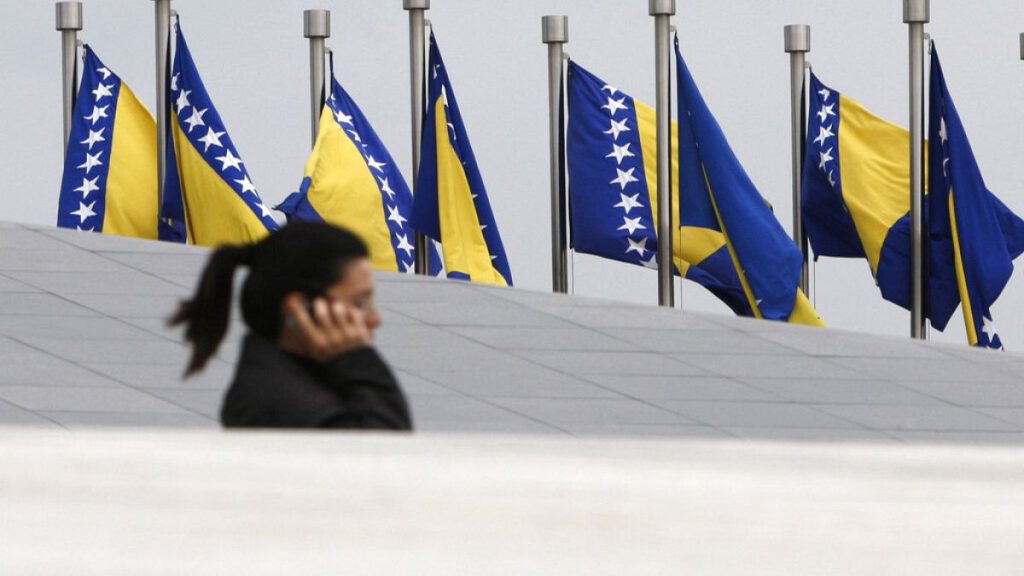The Kovačević vs. Bosnia and Herzegovina legal case currently before the European Court of Human Rights (ECtHR) is reigniting debates surrounding the fragile constitutional framework of Bosnia and Herzegovina (BiH). As the nation strives to integrate into the European Union amid considerable reform efforts linked to a €6-billion growth initiative, it finds itself entangled in a significant civil rights case that threatens the existing ethnic power-sharing system established by the Dayton Peace Agreement. Last year, the ECtHR ruled that Bosnia’s constitution is in violation of human rights as it prioritizes ethnic representation over broader political considerations. This ruling was based on a complaint filed by Slaven Kovačević, highlighting how ethnic-based restrictions hindered his voting rights during the general elections. As Bosnia has appealed this decision, the forthcoming verdict—estimated in 2025—could potentially reshape its tripartite presidency and play a crucial role in advancing the country’s EU accession process.
Kovačević’s case encapsulates profound political implications beyond mere legal considerations. As an advisor to Željko Komšić, a member of the Bosnian presidency from the Croatian ethnic group, Kovačević’s complaint emphasized how the ethnic composition defined by the constitution limits his electoral choices to candidates aligned with his designated ethnic group. The ruling by the ECtHR echoed findings made since 2009 where Bosnia’s constitutional and electoral frameworks have been scrutinized for violating the European Convention on Human Rights. Kovačević articulated that these constitutional provisions unfairly distinguished his voting rights, compelling him to select only from candidates deemed ethnically appropriate, which contradicts his desire for a more inclusive electoral choice.
At the heart of these legal and political challenges is the constitutional structure birthed from the Dayton Accords in 1995, which sought to quell the ethnic strife that had devastated the region and culminated in genocide. This framework bifurcated Bosnia into two main entities—Republika Srpska (RS) and the Federation of Bosnia and Herzegovina (FBiH)—based on ethnic lines, creating complex governance mechanisms that prioritize representation for defined “constituent peoples” (Bosniaks, Croats, and Serbs). However, this has led to systemic discrimination against “others,” a category that includes minorities and those who do not associate with any ethnic group, adding layers of legal and social challenges to governance. The recent rulings from the ECtHR regarding Kovačević have triggered renewed discussions about the potential need for constitutional reform, pointing to a cycle of failed attempts to address perceived inequities embedded in this structure.
The complexities of the ethnicized political system in BiH have generated critical discourse among political analysts and legal experts. Some argue that intervening to modify the constitutional arrangements could destabilize the delicate balance established by the peace treaty. Adnan Huskić, a political scientist, emphasized the potential hazards of dismantling the power-sharing arrangements which were critically viewed as essential for maintaining political stability. The constitutional provisions have long drawn critiques for promoting discrimination against citizens outside the primary ethnic groups, reflected in numerous cases similarly filed by individuals who identify as “others.” This persistent concern raises questions about the role of the European Court of Human Rights in navigating the intricacies of a constitutional framework that was originally designed to foster peace and cooperation among diverse ethnic groups.
Even as Bosnian citizens and legal experts acknowledge the discriminatory realities entrenched in the Dayton framework, the mechanisms for enacting change remain inconsistent. Historically, Bosnia’s own Constitutional Court has recognized the discriminatory nature of the constitution yet claims it lacks jurisdiction to amend the foundational document. As previous rulings have suggested that these inequities are necessitated by the overarching need for stability, it becomes evident that discussions about reforming the constitution are highly contentious. The conclusion remains that addressing these structural discriminations is not merely a legal obligation but a societal challenge as well.
The constitution theoretically guarantees equality by asserting that the rights enshrined in the European Convention on Human Rights hold priority within Bosnia. However, the practical implications of voting rights and representation paint a starkly different reality. Many argue that the stringent rules governing power sharing and electoral eligibility obstruct the rights of many citizens to cast votes freely for candidates of their choice at all levels of governance. The political structure favors representatives from the three predominant ethnic groups, sidelining “other” identities and engendering a sense of exclusion among a segment of the population who feel their rights to representation are systematically curtailed.
The case has also prompted a broader discourse concerning ethnic identity in BiH. Monika Mijić, representing the Bosnian government during the ECtHR appeal, posited that ethnic affiliation is inherently subjective, fostering a narrative that individuals have the freedom to choose their ethnicity. Critics, however, argue that this framing fails to recognize the complexities and sociopolitical realities impacting individuals’ historical and cultural affiliations. This dimension highlights a fundamental tension in BiH: while a belief in the flexibility of ethnic identity is theoretically appealing, it risks oversimplifying the deeply ingrained ethnic divides that shape individuals’ lived experiences. The outcomes of the Kovačević case thus possess profound implications not only for the immediate electoral landscape of BiH but also for the broader path toward national unity, representation, and alignment with European standards.














